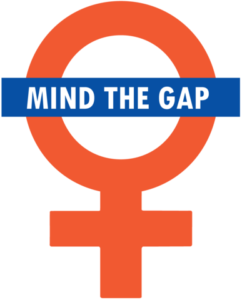FemTechNet Wins Support at Reclaim Open Learning Symposium!
By Jade Ulrich, Pitzer College
Last weekend, Susie Ferrell and I represented FemTechNet at the Reclaim Open Learning Symposium at the University of California – Irvine.
The Reclaim Open Learning contest invited innovators whose work embodied the principles of connected learning to submit their work. We applied for this Innovation Contest over the summer, and we were thrilled to hear that FemTechNet was one of five winners selected from around the world.
We are proud that FemTechNet is working from a place that aligns with these connected learning principles, makes use of open-access and open-license technologies and business models, and involves students as leaders and partners in innovative learning (such as learner-created projects). Our application stood out in the way that FemTechNet incorporates digital resources and practices in novel ways, presents an alternative to the MOOC, and most importantly, is a work in progress that is adapting to the emergent practices of our learners as we go.
Jade Ulrich (L) and Susie Ferrell (R) by the poster announcing their winning proposal to support their FemTechNet projects.
The two-day event really kicked off with a bang. The keynote speaker dialogue included scientist, artist and strategist, John Seely Brown, and Amin Saberi, a professor of management science, computational and mathematical engineering at Stanford, and now CEO of NovoEd (a MOOC startup). They discussed questions such as: where are we in the MOOC hype cycle, and does it matter? What are the relative strengths and weaknesses of online and offline interaction for learning?
That evening, Susie and I had the opportunity to enjoy dinner with the rest of the winners. This informal space allowed us to hear more about the amazing projects of the other winners. Fellow winners included DigiLit Leicester, Digital Storytelling 106, Jaaga Study (based in India), and Photography BA Hons and Phonar-Ed (based in the UK). It was a great experience to get to network with these educators who are doing work so different from FemTechNet, but within the same frame.
Of particular interest to me was the Digital Storytelling course. It is based on the notion, “a domain of one’s own.” It connects registered students and open participants (like our Self-Directed Learners!) in an ever-evolving online community where they submit, complete, and collaborate on assignments in writing, mash-ups, design, video, audio, and other media. The course lives online as a live-streaming radio station, a sub-reddit, a G+ group, and Twitter feed. There are many parallels to the pedagogy of FemTechNet here, but with a vastly different academic focus. Reclaim Open Learning managed to pull together a highly diverse group of projects, which nevertheless share similar principles of connected learning.
It was particularly exciting to see that FemTechNet is not just talking the talk, but walking the walk: Susie and I were the only student winners. I think this fact speaks very highly of FemTechNet’s efforts to encourage strong leadership amongst its students. I would like to think that despite the fact that Susie and I are both still undergrad students, we represented FemTechNet in the best possible way.
If you are interested in seeing the panel that Susie and I were on, here is the link.

